
What is CBN?: The Emerging Cannabinoid's Uses and Effects

If you're asking the question "what is CBN?", you're not alone. Between CBD, THC, CBG, CBC and hundreds of other cannabinoids found in the cannabis plant, it's easy to get confused.
Cannabinol, or CBN, is a cannabinoid derived from the aging process of THC and is renowned for its therapeutic potential without the psychoactive effects.
This article will guide you through the essential knowledge about CBN, from its calming effects that may improve sleep to its role in pain and inflammation management, while also addressing its legal status and how you can find it on the market.
Key Takeaways
- CBN is a non-intoxicating cannabinoid with potential health benefits, including sleep aid, pain relief and anti-inflammatory properties. It is available in various forms such as tinctures and edibles.
- Research on CBN is still in early stages but shows promise for its sedative effects and the ability to work synergistically with other cannabinoids through the ‘entourage effect’ to enhance health benefits.
- While CBN is legally available in the United States when derived from hemp with less than 0.3% THC, the legal landscape is complex and evolving, and users must ensure compliance with federal regulations.
Unveiling CBN: A Brief Overview

CBN, or Cannabinol, is a non-intoxicating compound that is found in the Cannabis sativa plant and is produced as Tetrahydrocannabinol (THC) ages and breaks down.
CBN is one of over 100 minor cannabinoids found in the cannabis plant, with CBD and THC being the two major cannabinoids.
It has been gaining popularity for its potential therapeutic benefits, including promoting better sleep, offering pain relief and performing anti-inflammatory functions.
A distinguishing factor of CBN from other cannabinoids is its non-intoxicating nature. Unlike THC, CBN doesn’t stimulate the brain’s CB1 and CB2 receptors to produce a “high.”
You might find CBN in various products - from sleep tinctures to CBD edibles, most of which focus on improving the sleep quality of consumers.
While CBN research is nascent, preliminary findings are promising. Research suggests that CBN’s sedative effects could be beneficial for those struggling with sleep disorders.
For instance, in a study called Cannabinol (CBN; 30 and 300 mg) effects on sleep and next-day function in insomnia disorder (‘CUPID’ study) the researchers note that "Insomnia is the most prevalent sleep disorder, with few effective pharmacotherapies. Anecdotal reports and recent preclinical research suggest that cannabinol (CBN), a constituent of Cannabis sativa derived from delta-9-tetrahydrocannabinol, could be an effective treatment."
Moreover, its potential in pain management and anti-inflammation could make it a natural alternative for those seeking relief.
As CBN oil and other CBN products become more widely available, the future of this intriguing cannabinoid seems bright.
The Science Behind CBN
CBN’s underlying science is intriguing. It’s unlike other cannabinoids in its interaction with the human endocannabinoid system.
Specifically, CBN shows a notably reduced binding activity to CB1 receptors compared to other cannabinoids, indicating that it may have milder effects on the central nervous system.
This could be why CBN affects the body differently, and why it’s less intoxicating than its cousin, THC.
Binding Affinity to CB1 Receptors
The way CBN interacts with our body’s CB1 receptors is distinctive. It has high binding affinities and functions as a low affinity partial agonist at the CB1 receptors, yet it exhibits a lower affinity for both CB1 and CB2 receptors compared to other more active cannabinoids.
This balance offers a different set of effects, which is why CBN can offer a unique experience to its users.
Though CBN exhibits weak psychoactive effects, it can still bind to cannabinoid receptors. Its interaction with CB1 receptors may lead to effects resembling those of THC, albeit less intense.
This makes CBN a potentially attractive option for those seeking the benefits of cannabinoids without a strong psychoactive effect.
Synergistic Effects with Other Cannabinoids
The synergistic effects of CBN with other cannabinoids underscore its distinctiveness. This theory is known as the “entourage effect”, which outlines how cannabinoids work better together than individually, which can be seen as a natural “combinations act” in the case of CBN.
For example, CBN can enhance THC’s effects on appetite stimulation, intoxication and improved sleep quality. When combined, they can produce a drowsy version of the THC high, helping users to induce sleep and prolong sleep time by fostering sound and restful slumber throughout the night.
CBN can also interact synergistically with CBD by bolstering CBD’s anti-stress benefits. This potentially powerful combination may be effective for those suffering from sleep disorders, since stress is the number one cause of bad sleep.
Additionally, many people claim sleep problems can be reduced through enhanced pain relief and relaxation. CBN shows promise as an effective component in a holistic approach to health and wellness, as cannabinol delays symptom onset in some cases and enriches how CBD makes you feel.
The Top 3 Health Benefits of CBN

Although the benefits of CBN seem promising, it’s worth mentioning that cannabinoid research is still in its infancy.
Much of the current understanding of CBN’s health benefits comes from preclinical studies, and more large-scale human studies are needed to determine the full extent of CBN’s potential.
Additional studies need to be performed on CBN's interaction with specific health conditions, and ultimately the cannabis plant needs to be de-stigmatized so more scientific evidence can be released on its benefits.
However, the early research suggests that CBN has a promising and bright future in the wellness industry.
1. Sleep Aid Potential

CBN’s potential as a sleep aid is a widely discussed benefit, especially for those suffering from a sleep disorder.
Scientific studies and anecdotal reports suggest that CBN may have sleep-promoting effects, such as prolonging sleep time and enhancing relaxation and sedation before bedtime.
These therapeutic effects might be more pronounced when CBN is combined with other substances, such as THC, CBD, GABA, L-Theanine and Chamomile.
When it comes to dosage, a typical starting dosage of CBN to aid with sleep is usually between 5-15mg. Although, CBN is often infused with CBD oil which adds another 20-30mg of hemp extract per dose.
CBN offers an alternative to traditional sleep aids and has demonstrated potential for effectively promoting restful sleep.
While there is no direct evidence confirming CBN’s sleep enhancement capabilities, it may indirectly support better sleep by reducing psychological arousal at bedtime, which can facilitate the onset of sleep.
2. Pain Management Potential

CBN is also being researched for the ability to relieve pain. Preclinical studies have indicated that CBN may possess pain-relieving properties, suggesting potential for future clinical research of the hemp plant.
CBN may offer pain relief by leveraging its sedative properties, and while there is insufficient evidence, some users have reported it useful for addressing tension headaches and tight muscles.
Moreover, a WebMD study suggests that CBN may have the potential to demonstrate relief in muscle and joint pain conditions like fibromyalgia.
Whether it's fibromyalgia, myofascial pain, or other medical conditions caused by pain and nerve damage, more research is needed to fully substantiate how CBN appears to help with pain relief.
3. Anti-Inflammatory Potential

Another intriguing aspect of this cannabinoid is CBN’s potential anti-inflammatory properties. CBN exerts its anti-inflammatory effect by inhibiting the protein Nuclear Factor kappa B (P-NF-κB), which, when downregulated, leads to a reduction in proinflammatory gene transcription.
CBN is often used to recover from exercise or deal with body swelling, and users write reviews on how it can help them decompress after a strenuous day.
Disclaimer: The FDA (Food and Drug Administration) has not evaluated the statements made on this page. Products that contain CBN are not intended to diagnose, treat, cure, or prevent any disease or illness. Always check with your physician before starting a new dietary supplement program. It's important to note that research in this area is still ongoing and conclusions are not definitive.
CBN's Legality and Sources
While CBN is considered legal in the United States and is not classified as a controlled substance, it must be derived from hemp and must contain less than 0.3 percent THC to comply with federal regulations.
CBN can be extracted from either hemp or marijuana and is the same chemical compound regardless of either sourced plant. Although, if it's extracted from hemp it's legal per the 2018 Farm Bill, and if it's extracted from marijuana it's considered a schedule 1 narcotic.
While this may sound ludicrous, it's incredibly important to check lab results from credible brands to ensure the CBN is derived from hemp so you can avoid legal trouble.
Just like CBD products, until CBN becomes FDA approved as a dietary supplement it's essential to adhere to these regulations and to purchase CBN products from reputable companies.
CBN Products and Consumption Methods
The escalating interest in CBN has led to an influx of CBN products in the market, providing consumers with an array of choices.
These include everything from oils and tinctures to edibles like drinks, pills and savory snacks.
These products offer different consumption methods, and the choice ultimately depends on individual preference and the desired effects.
The consumption method can influence the absorption and efficacy of CBN. When ingested, for example, absorption is slower with delayed peak concentrations, resulting in a longer time to take effect but ultimately delivering a more prolonged impact compared to other methods.
Most CBD sleep aids come in oil form, enhanced with CBD, as oral biology shows that one of the fastest ways for CBN to absorb into the body is sublingually through the mucous membrane which is more permeable than the skin.
So if you're looking for fast relief, try CBD oils in the tincture form that are enhanced with CBN and come with a pipette for you to drop the oil under your tongue.
Understanding these differences can help you make an informed decision about which consumption method is right for you.
CBN Oils
For those looking to reap the benefits of this cannabinoid, CBN oils are a favored choice. These oils are produced by extracting CBN from hemp plants using methods such as supercritical CO2 extraction. This process ensures a high-quality product that retains the beneficial properties of CBN.
When it comes to dosing, a typical starting dosage of CBN oil for sleep is usually between 30-40mg (counting all active cannabinoids in the CBD products involved in the combinations act).
As always, it’s recommended to start with a small dose and adjust as necessary based on your individual response. This allows you to reap the potential benefits of CBN oil without overdoing it.
Edibles with CBN
Another favored form of CBN is edibles. These range from:
- Candy
- Confectionary treats
- Capsules
- Savory snacks
- Kitchen staples like infused butter and olive oil
CBN edibles can be consumed directly or used as ingredients in meals for a personalized consumption experience.
When CBN is consumed through edibles, it is metabolized by the liver, a process that can take anywhere from 10 minutes to 3 hours.
Like all substances, CBN can have side effects, and it’s possible to have an allergic reaction to it. However, for many people, the potential benefits of CBN outweigh the potential side effects. As with any new supplement, it’s always a good idea to discuss with your physician, especially if you are taking medication.
CBN Topicals
CBN topicals are frequently used to foster relaxation and facilitate sleep and allow for more targeted application. They are available in forms like peripheral analgesics:
- Creams
- Lotions
- Balms
- Transdermal patches
CBN topicals can be applied directly to the skin in the targeted area for localized effects, but usually don't work as well as ingestibles.
However, like all CBN products, more research is needed to fully understand the advantages and disadvantages of using CBN topicals.
CBN vs. CBD: Comparing the Two Cannabinoids

CBN (Cannabinol) and CBD (Cannabidiol) are both cannabinoids found in the cannabis plant, but they have different properties and effects. Here's a comparison of the two:
Chemical Structure and Origin:
- CBD is a major cannabinoid, naturally occurring in the cannabis plant. It is non-psychoactive, meaning it doesn't produce a "high."
- CBN is a minor cannabinoid, typically formed as THC (tetrahydrocannabinol) ages and breaks down. It is mildly psychoactive in large amounts, but much less so than THC.
Effects and Benefits:
- CBD is known for its potential therapeutic effects. It is being researched to help with anxiety, depression, pain relief, and inflammation. CBD has also been studied for its role in treating certain forms of epilepsy and is the active ingredient in the FDA-approved drug Epidiolex.
- CBN is less studied than CBD but is gaining interest for its potential sedative properties. It is most known as a sleep aid. Early research is being conducted to reveal it's potential neuroprotectant, anti-inflammatory, and appetite-stimulating effects.
Usage and Products:
- CBD is widely available in various forms, including oils, tinctures, capsules, edibles, topicals, and vapes.
- CBN is less commonly found in products, but its popularity is growing. It's mostly seen in products marketed for sleep, like oils and edibles.
Side Effects and Safety:
- Both cannabinoids are generally considered safe, with few and mild side effects. However, they can interact with certain medications, so consulting with a healthcare provider before use is advisable.
Research and Evidence:
- CBD has been extensively researched, with a growing body of evidence supporting its therapeutic benefits.
- CBN is less researched, and many of its purported benefits are based on preliminary studies or anecdotal evidence.
For a full breakdown, check out our resource: CBD vs. CBN
Safety and Side Effects of CBN
Similar to any substance, CBN may pose potential side effects. It is important to be aware of these before use. Typical side effects that can be experienced when using CBN include:
- Dizziness
- Fatigue
- Dry mouth
- Drowsiness
- Changes in appetite and weight
- Upset stomach
- Diarrhea
- Possible liver injury
These side effects are generally mild and temporary, but it’s important to be aware of them as they can be related to the immune system.
It’s also important to note that CBN can interact negatively with medications, particularly with those that affect the liver enzyme CYP3A4. Always consult a healthcare provider before combining CBN with any medications.
The Future of CBN Research
Prospects for future CBN research appear promising. Ongoing studies are exploring its potential health benefits in areas such as sleep, pain management and inflammation. The projected growth of the CBN industry is expected to be substantial, and as more research unfolds, we can expect to see an increasing array of CBN products entering the market.
Potential applications of CBN being researched for therapeutic uses are diverse and include:
- Improving sleep
- Pain relief
- Anti-inflammatory
- Anti-bacterial
- Neuroprotection
- Promoting skin and bone health
- Treating conditions such as Epidermolysis Bullosa, Glaucoma, and chronic muscle pain
With each new discovery in scientific research, the potential of CBN becomes more apparent.
Summary
In conclusion, CBN is an intriguing compound with a unique profile of effects and potential benefits. From its potential as a sleep aid and pain reliever to its anti-inflammatory properties, CBN is gaining attention in the wellness industry. While more research is needed to fully understand its potential, the initial findings are promising.
As the cannabinoid industry continues to evolve, CBN stands out as a promising compound with potential therapeutic benefits. Whether you’re interested in its potential sleep-enhancing properties, its possible role in pain management, or its potential as an anti-inflammatory agent, CBN is a compound worth watching.
The future of CBN research is exciting, and we can’t wait to see what’s next, and while you wait try our THC gummies for sleep.

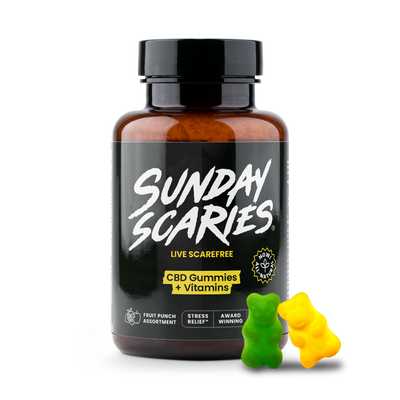 CBD Gummies
Stress Relief
CBD Gummies
Stress Relief
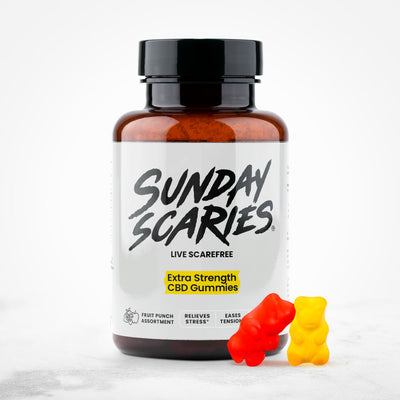 Extra Strength CBD Gummies
Stress Relief
Extra Strength CBD Gummies
Stress Relief
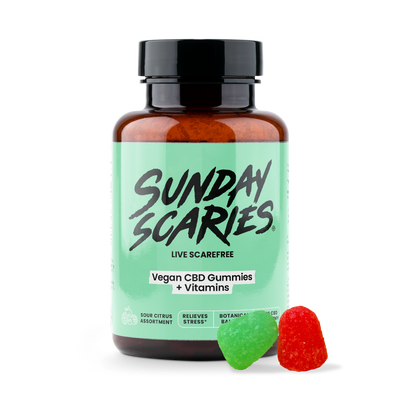 Vegan CBD Gummies
Stress Relief
Vegan CBD Gummies
Stress Relief
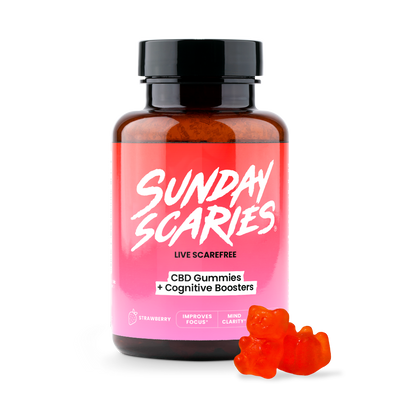 CBD Gummies for Focus
Focus Boost
CBD Gummies for Focus
Focus Boost
 CBD Candy
Mood Lift
CBD Candy
Mood Lift
 CBD Daytime Oil
Stress Relief
CBD Daytime Oil
Stress Relief
 CBD Sleep Oil
Sleep Aid
CBD Sleep Oil
Sleep Aid
 CBD Dog Treats
Stress Relief
CBD Dog Treats
Stress Relief
 Side Piece Bundle
Stress Relief
Side Piece Bundle
Stress Relief
 Rando Bundle
Stress Relief
Rando Bundle
Stress Relief
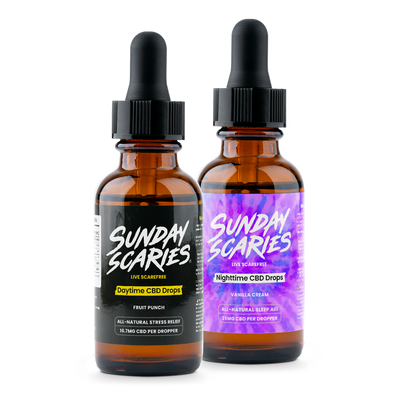 Sunrise & Sunset CBD Oil Bundle
Stress Relief
Sunrise & Sunset CBD Oil Bundle
Stress Relief
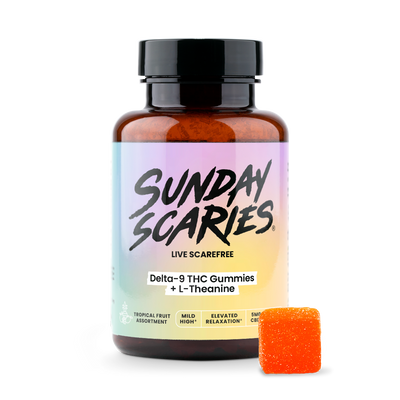 5mg Delta-9 Gummies
Euphoria
5mg Delta-9 Gummies
Euphoria
 10mg Delta-9 Gummies
Euphoria
10mg Delta-9 Gummies
Euphoria
 THC Gummies for Sleep
Sleep Aid
THC Gummies for Sleep
Sleep Aid
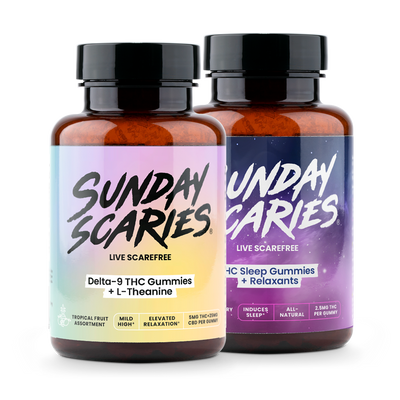 Day & Night THC Gummies Bundle
Stress Relief
Day & Night THC Gummies Bundle
Stress Relief
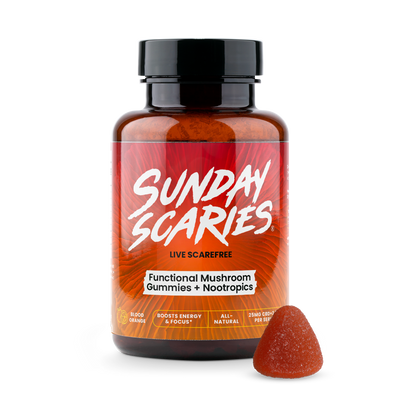 Mushroom Gummies
Focus Boost
Mushroom Gummies
Focus Boost
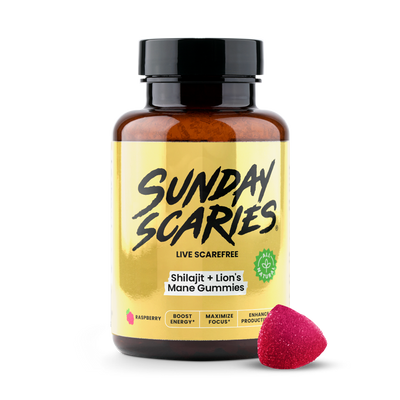 Shilajit Gummies
Focus Boost
Shilajit Gummies
Focus Boost
 Sunday Scaries Hat
Sunday Scaries Hat
 Sunday Scaries Dad Hat
Sunday Scaries Dad Hat
 Sunday Scaries T-Shirt
Sunday Scaries T-Shirt
 Sunday Scaries Pocket Tee
Sunday Scaries Pocket Tee
 Sunday Scaries Tank Top
Sunday Scaries Tank Top
 Sunday Scaries Sweatshirt
Sunday Scaries Sweatshirt
 Sunday Scaries Blanket Jacket
Sunday Scaries Blanket Jacket
 Sunday Scaries Sweatpants
Sunday Scaries Sweatpants

